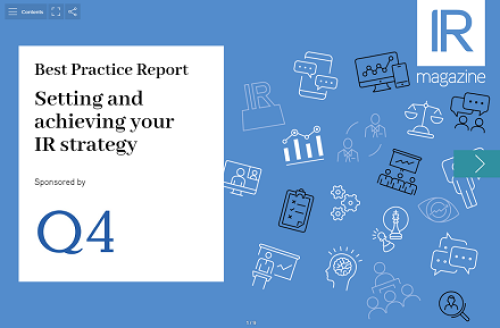New survey examines Canadian retail investment habits for first time since 2008 crash
At some point in their investment history, one in three Canadian retail investors has lost at least 20 percent of his or her stock value in one year – rising to four in 10 investors trading in high-risk stocks – according to a new study from Investor Education Fund (IEF).
The Canadian Money State of Mind Risk Survey 2014 finds that ‘of those who had a major loss, 51 percent stayed the course and didn’t change their investments in response.’ In fact, ‘experiencing a major loss does not visibly affect how people judge their investment success in the long run,’ according to the survey.
‘There are two dominant patterns of response to major loss: do nothing (51 percent) or flee to safety (36 percent) either for a short time or permanently,’ note the authors, who add there is ‘a small group (13 percent), relatively high risk in profile, that tries to recoup its loss by buying more of the losing investment at a lower price in the hope of recouping losses when the price rises.’
Looking at how Canadians deal with risk, emotion, financial loss and decision making, the study of more than 2,000 investors finds that almost a quarter of those who consider themselves to be low-risk investors actually own ‘medium to very high-risk’ products, while 70 percent of self-identified high-risk investors also own ‘low to medium-risk’ products.
Tom Hamza, IEF president, tells IR Magazine this is often seen with older investors who might ‘insist they are the most conservative investor possible, but in order to have any kind of growth – unless they’ve got enormous amounts of money squirreled away for the future – they have to take some kind of risk, particularly if you look at longevity growth: they might live to 90, or even 99.
‘So it’s not a bad thing to have some equity disclosure in your portfolio. Obviously it has to be mitigated and the risk element needs to be balanced out with more conservative things, but it’s unrealistic for people to think, I will not take on any risk.’
Examining the kinds of risks Canadians take with their investments, researchers find ‘risk taking is not uniform across the population. It is [more common] among men than women’, ‘declines with age and increases with household income.’ Some regions are also more open to investment risks; Vancouver and Toronto investors top the list, closely followed by Kitchener-Waterloo.
Ninety-two percent of Canadian investors interviewed own low-risk products, while almost six out of 10 have owned a medium-risk product. Just over half have owned a higher-risk product, with Canadian equities dominating the mix, according to IEF, which is funded by the Ontario Securities Commission. Advanced investments such as options, hedge funds, exempt market investments and limited partnerships are held by only 6 percent of respondents. Investment funds and Canadian stocks are deemed the ‘best-performing products’ by Canadians, add researchers.
The study also finds that only 60 percent of individuals base investment decisions on analysis alone. The rest bring in at least some degree of emotion: ‘just over half of investors have made an investment decision based on an emotional reaction they subsequently regretted, although most have done so only once or twice,’ the study notes.










